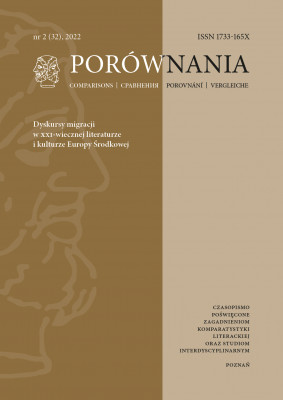Narratives About Migration in the Works of Contemporary Writers of Hungarian Cultural Origin
Migration is one of the most momentous existential experiences of modern man. It is a change that has serious consequences for the individual, regardless of whether it is accompanied by coercive (political or economic) motivations or it is voluntary. In both of these cases, the process of adaptation in a new place may turn out to be a difficult and burdensome task for the individual. What is more, it can also affect the next generations. Children of migrants often struggle with the same problems that their parents or grandparents had to face. The fact that the functioning between two cultures, languages and traditions can turn out to be literally prolific is evidenced by the work of writers of Hungarian origin who live and work outside their country of origin. This article examines the work of three such authors: Terézia Mora and Ilma Rakusa, who write in German, and the Anglophone author Charlotte Mendelson. Each of them thematizes the issue of migration in a different way and uses different solutions at the level of the structure and the narrative of their works.
| Article Title | Type | Size |
|---|---|---|
| porownania.32.15.ROGUSKA NEMETH | [pdf] | [194 KB] |
